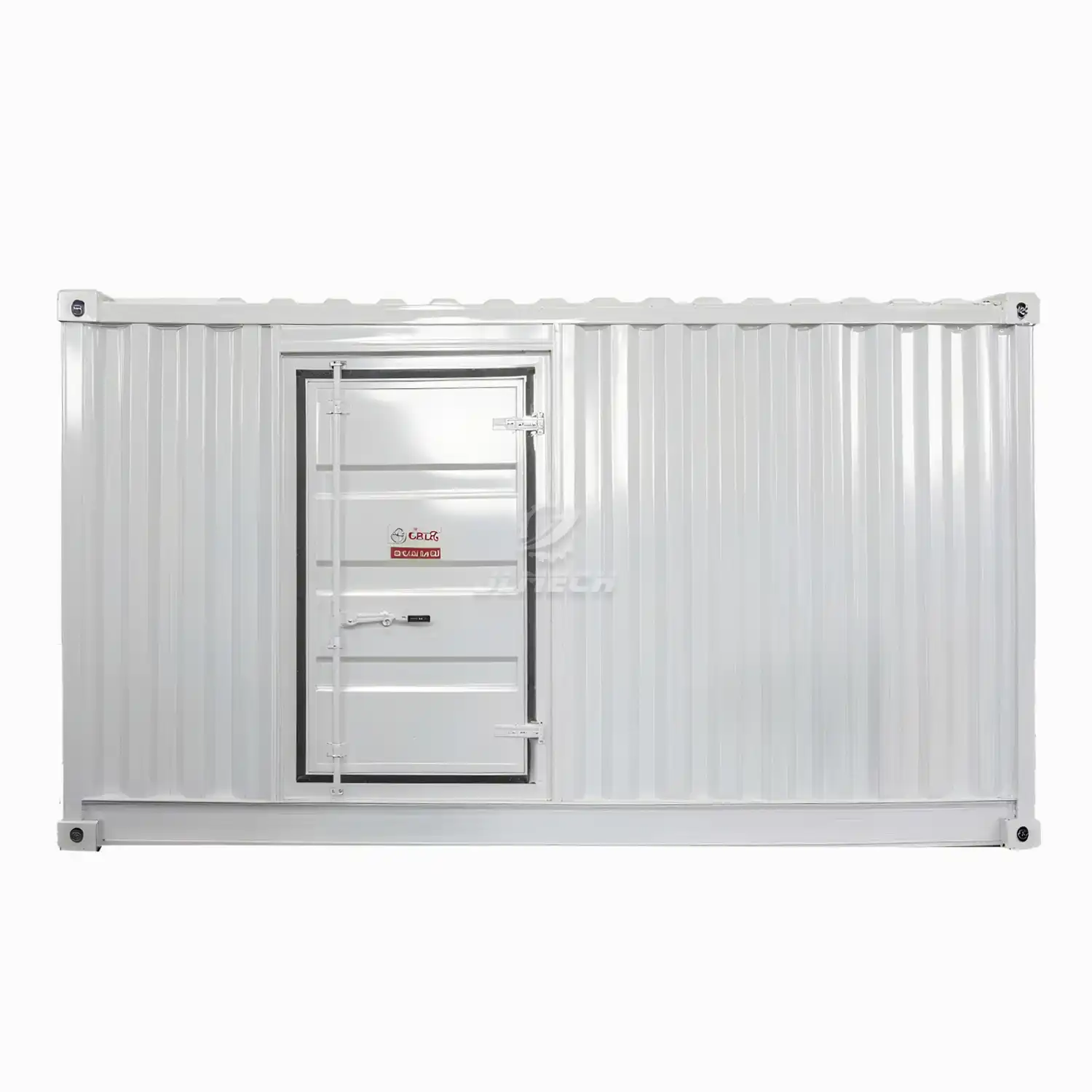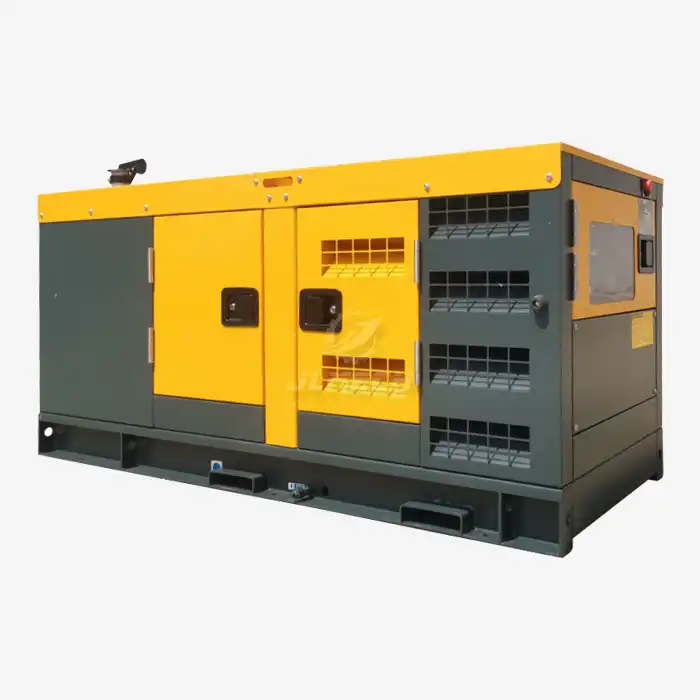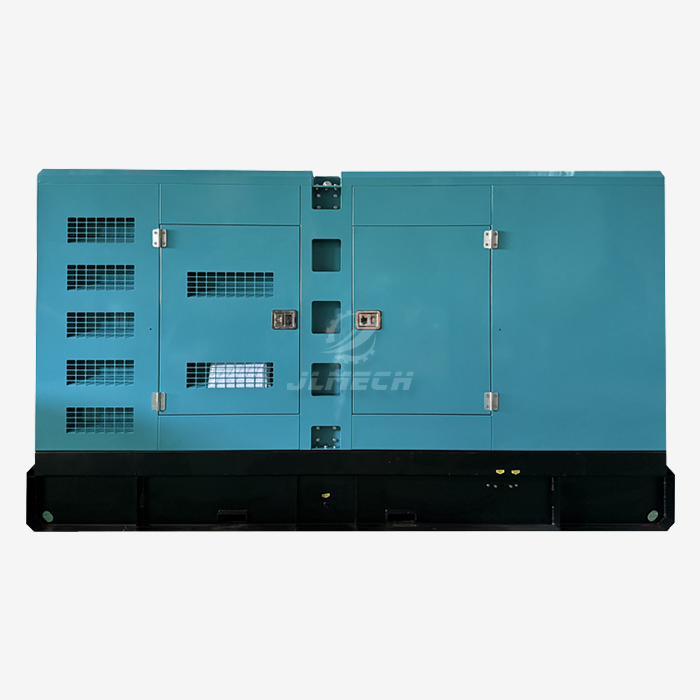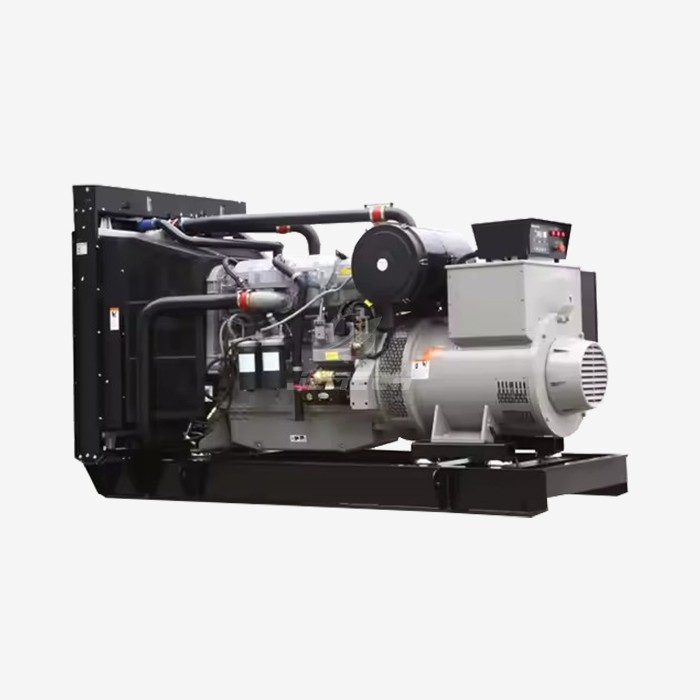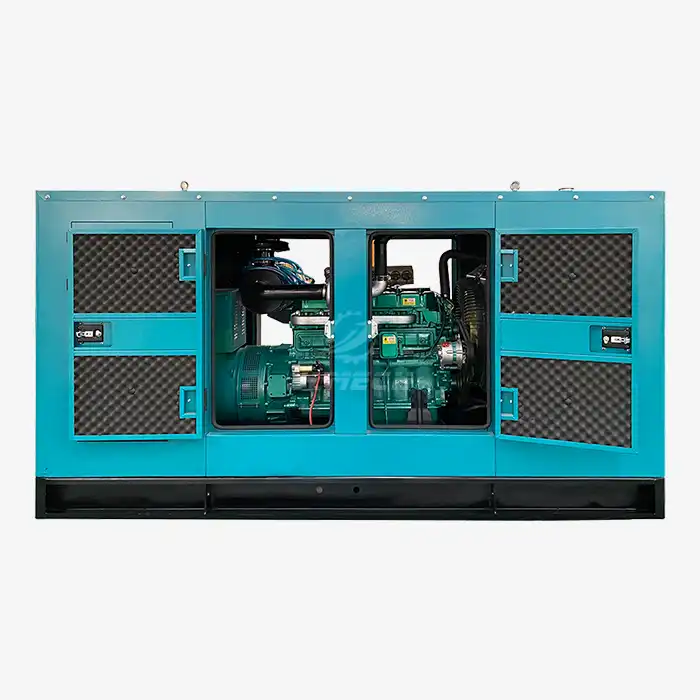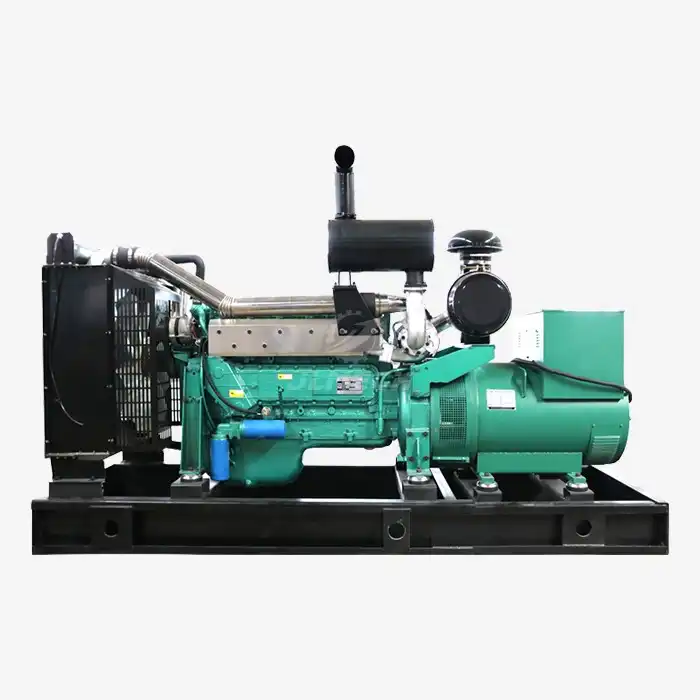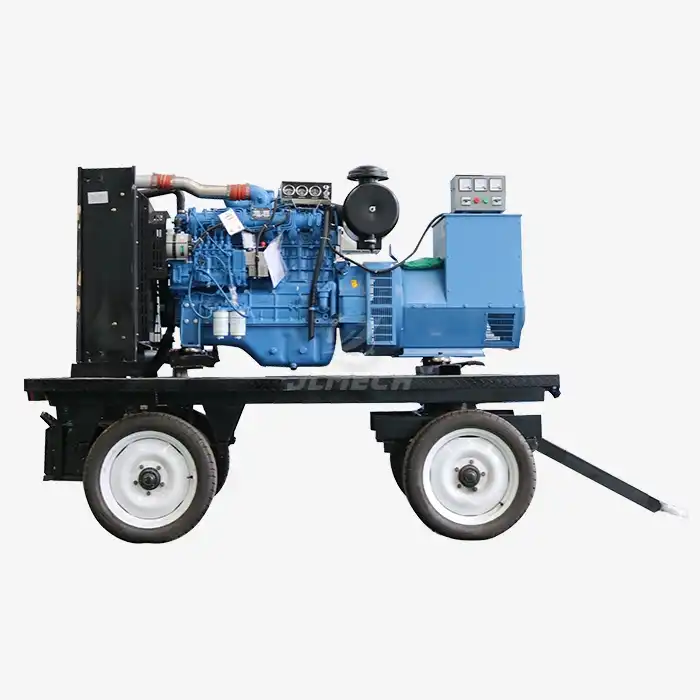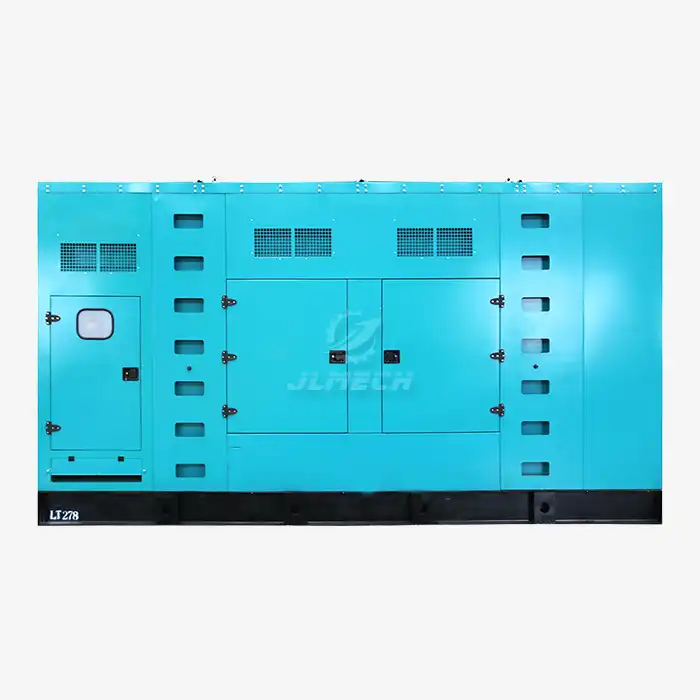Which generator is the most fuel-efficient?
Fuel efficiency has become one of the most critical factors in generator selection, directly impacting operational costs, environmental compliance, and long-term sustainability. With fuel costs representing up to 70% of the total ownership expense over a generator's lifespan, choosing an efficient model can result in substantial financial savings. Additionally, growing environmental regulations and corporate sustainability initiatives make fuel efficiency an essential consideration. Understanding what makes a fuel efficient generator and how to select the right one requires careful analysis of multiple technical factors and operational requirements.

Technical Metrics and Calculation Methods
Proper evaluation of generator efficiency begins with understanding key performance indicators and measurement standards:
Critical Efficiency Metrics:
Specific Fuel Consumption (SFC): Typically measured in grams per kilowatt-hour (g/kWh), with lower numbers indicating better efficiency
Thermal Efficiency: The percentage of fuel energy converted to electrical energy, with modern diesel generators achieving 35-45%
Load Factor Efficiency: How efficiency changes at different operating loads, with peak efficiency usually between 70-80% of rated capacity
Standardized Testing Conditions:
ISO 8528-5 provides internationally recognized testing protocols
Measurements taken at standard conditions: 25°C, 100 kPa atmospheric pressure, 30% relative humidity
Efficiency ratings typically referenced at 75% load for comparative purposes
Practical Calculation Tools:
Lifecycle cost analysis models incorporating maintenance, fuel prices, and initial investment
Return on investment calculators comparing premium efficiency models versus standard units
Accurately interpreting these metrics is essential for identifying a truly fuel efficient generator that meets both performance and economic requirements.
Fuel Type Efficiency Comparison
Different generator technologies offer distinct efficiency characteristics and operational advantages:
Diesel Generators:
Highest thermal efficiency among conventional options (35-45% in advanced models)
Superior performance at partial loads compared to other technologies
Common-rail injection systems and electronic controls optimizing fuel delivery
Ideal for continuous operation and heavy-duty applications
Natural Gas Generators:
Moderate efficiency range (30-40%) with cleaner emissions profile
Stable fuel pricing in regions with abundant natural gas resources
Requires established gas infrastructure for practical operation
Best suited for base load applications with consistent fuel availability
Gasoline Generators:
Lower efficiency (25-35%) suitable for light-duty and intermittent use
Higher operating costs and shorter service intervals
Primarily appropriate for portable applications and emergency backup
Emerging Technologies:
Hybrid systems combining traditional generators with battery storage
Renewable-integrated solutions for specific application profiles
Smart grid-compatible generators with advanced load management
Brand and Model Efficiency Comparison
Significant variations exist between manufacturers and specific product lines:
High-Efficiency Diesel Models:
Advanced electronic management systems optimizing real-time fuel delivery
Sophisticated turbocharging and intercooling systems enhancing combustion efficiency
Documented 5-15% efficiency advantages over standard models
Industry Performance Benchmarks:
Premium diesel models achieving >40% thermal efficiency under optimal conditions
10-20% efficiency variance between entry-level and high-efficiency units
Leading brands typically offering 5-10% better fuel economy than value-oriented competitors
Economic Considerations:
15-30% price premium for high-efficiency models requiring cost-benefit analysis
Typical payback periods of 2-4 years through fuel savings in continuous operation
Long-term operational advantages often justifying initial investment premium
Selecting the right fuel efficient generator involves balancing initial cost with long-term operational economics based on specific usage patterns.
Operational Practices Affecting Efficiency
Proper operation and maintenance significantly impact real-world fuel consumption:
Optimal Loading Strategies:
70-80% load range typically delivers peak efficiency operation
Avoiding prolonged operation below 50% capacity where efficiency decreases substantially
Implementing load management systems to prevent inefficient overload conditions
Maintenance Impact on Efficiency:
Regular air filter maintenance preserving optimal air-fuel ratios
Fuel system servicing ensuring precise injection performance
Proper lubrication reducing mechanical losses and friction
Cooling system maintenance maintaining ideal operating temperatures
Environmental and Operational Factors:
Cooler ambient temperatures improving air density and combustion efficiency
Altitude adjustments necessary for high-elevation operations
Proper ventilation maintaining optimal operating conditions
Fuel quality considerations affecting combustion characteristics
Selection Criteria for Fuel-Efficient Generators
Strategic considerations when choosing an efficient generator solution:
Application Analysis:
Detailed assessment of runtime requirements and load profiles
Fuel availability and infrastructure considerations
Environmental regulations and emission requirements
Future expansion plans and scalability needs
Technical Evaluation Criteria:
Verification of manufacturer efficiency data through independent testing
Compliance with relevant certifications (EPA Tier 4, EU Stage V, etc.)
Warranty terms and service support availability
Compatibility with existing systems and infrastructure
Economic Analysis:
Comprehensive lifecycle cost analysis beyond initial purchase price
Fuel price stability considerations and regional availability
Maintenance cost projections and service accessibility
Residual value expectations and depreciation factors
Implementation Considerations:
Installation space requirements and ventilation needs
Noise limitations and environmental restrictions
Integration with existing power management systems
Future technological compatibility and upgrade paths
Conclusion
Diesel generators generally provide the best fuel efficiency for most industrial and commercial applications, with modern electronic-controlled models achieving thermal efficiencies exceeding 40% in optimal conditions. The ultimate selection depends on specific operational requirements, fuel availability, environmental considerations, and economic factors. For applications prioritizing operational economy and performance, investing in a properly specified fuel efficient generator delivers substantial long-term benefits through reduced operating costs and improved sustainability performance.
Our technical experts can help you navigate the complexities of generator selection to identify the most fuel-efficient solution for your specific requirements. Contact us at skala@whjlmech.com for personalized recommendations and detailed efficiency comparisons tailored to your operational needs.
References
International Organization for Standardization. (2023). ISO 8528: Reciprocating internal combustion engine driven generating sets. Geneva: ISO.
Diesel Technology Forum. (2023). Comparative Analysis of Diesel Generator Efficiency Metrics. Maryland: DTF.
Energy Efficiency Council. (2023). Best Practices Guide for Generator Selection and Operation. London: EEC.
Johnson, M. (2022). Emergency Power Systems: A Comprehensive Guide to High-Speed Diesel Generators. Power Engineering Quarterly, 45(3), 78-92.



